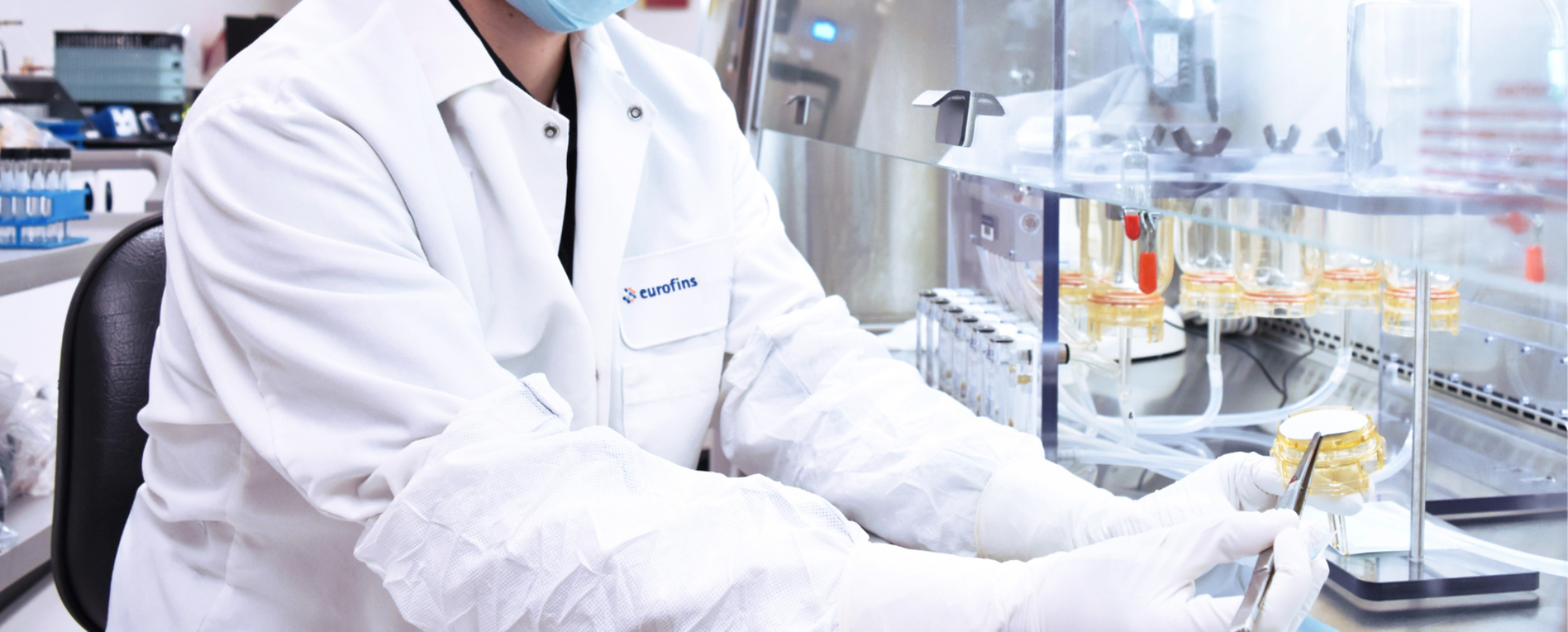
- No Results
- Global
-
Australia

-
Austria

-
Azerbaijan

-
Brazil

-
Belgium

-
Canada

-
Chile

-
China

-
Costa Rica

-
Croatia

-
Czech Republic

-
Denmark

-
ESTONIA

-
Finland

-
France

-
Germany

-
Hong Kong

-
Hungary

-
India

-
Italy

-
Ireland

-
Japan

-
Korea

-
Latvia

-
Lithuania

-
Malaysia

-
Mexico

-
Morocco

-
Netherlands

-
New Zealand

-
Norway

-
Philippines

-
Poland

-
Portugal

-
Romania

-
Singapore

-
Slovakia

-
Slovenia

-
Spain

-
Sweden

-
Switzerland

-
Taiwan

-
Turkey

-
United Kingdom

-
UNITED ARAB EMIRATES

-
United States

-
Vietnam

Antimicrobial Services
Contact usEvaluating the degree of antimicrobial activity on a medical device is a critical step to ensuring product safety, efficacy and regulatory compliance.
Eurofins Medical Device Testing’s team of experienced scientists can determine the most applicable antimicrobial solution to suit your medical device depending on your device’s components, its application and intended end use. We can evaluate the effectiveness of your products against bacteria, moulds and viruses. Additionally, we perform testing on your medical device for antimicrobial properties to ensure product and patient safety. This testing helps to avoid microbial proliferation and biofilm formation on the device, amongst other concerns, and substantiate a claim.
Eurofins Medical Device Testing’s network of laboratories provides a full scope of antimicrobial services and testing according to various regulatory standards to help ensure the highest levels of product safety and efficacy.
Choose Eurofins Medical Device Testing to help you:
- Ensure your device complies with applicable regulatory standards through the development process
- Determine the most applicable antimicrobial methods to suit the components of your medical device
- Determine the sample size needed for a comprehensive antimicrobial evaluation
- Assess the impacts on your device caused by changes to raw material suppliers, processing techniques or sterilisation methods
Test Methods
- Minimum Inhibitory Concentration/Minimum Bactericidal Concentration (MIC/MBC)
We use a microwell plate to test a dilution series of liquids and other soluble substances with possible antimicrobial activity with different bacterial or fungal test strains of interest. The plates are then incubated under appropriate conditions. Growth or no growth is a measure for the minimum inhibitory concentration. Additional plate counts help to determine the minimum bactericidal concentration.
- Antibacterial Activity of Textile Fabrics (ISO 20645)
Our experts perform a visual evaluation of the zone of inhibition around and under a sample of textile fabrics on an Agar diffusion plate. Test strains: Staphylococcus aureus (ATCC 6538), Escherichia coli (ATCC 11229), Klebsiella pneumonia (ATCC 4352).
- Antimicrobial Agents Under Dynamic Contact Conditions (ASTM E2149)
Our scientists perform a dynamic shake flask test to determine the activity of antimicrobial agents in powder, paper, solid materials and/or surfaces under dynamic contact conditions. Test strain: Escherichia coli (ATCC 8739).
- Antimicrobial Activity on Plastics and Non-porous Surfaces (ISO 22196)
We will measure the activity of antibacterial-treated plastics, metals and other non-porous surface products, including intermediate products in direct contact. Products tested should be sterile or disinfected prior to testing as testing occurs on the exposed outer surface. Test strains: Staphylococcus aureus (ATCC 6538), Escherichia coli (ATCC 8739) and other species, if required.
- Antimicrobial Activity of Textile Products (ISO 20743)
Similar to ISO 22196, our experts determine the antimicrobial activity of textile products through absorption. Test strains: Staphylococcus aureus (ATCC 6538), Klebsiella pneumoniae (ATCC 4352).
- Antimicrobial Agents in Polymeric or Hydrophobic Materials (ASTM E2180)
Our testing determines the activity of incorporated antimicrobial agents in polymeric or hydrophobic materials through a direct contact method with solid materials. Test strains: Staphylococcus aureus (ATCC 6538), Pseudomonas aeruginosa (ATCC 15442), Klebsiella pneumoniae (ATCC 4352).
- Antimicrobial Finishes on Textile Materials (AATCC TM100)
We perform this method as a quantitative procedure for the comparison and evaluation of the degree of antibacterial activity on a test fabric, compared against an untreated control. Test Strains: Staphylococcus aureus (ATCC 6538), Klebsiella pneumonia (ATCC 4352) and other species, if required.
- Antimicrobial Effectiveness (EP/USP)
Our experts determine the effectiveness of a medical device’s preservative system in preventing replication of microorganisms that may be introduced inadvertently to multiple-dose containers subsequent to manufacturing steps. The tests are generally conducted on products intended for parenteral, ophthalmic, oral, topical, or optic use. Depending on device classification, strains may include Staphylococcus aureus (ATCC 6538), Pseudomonas aeruginosa (ATCC 9027), Escherichia coli (ATCC 8739), Aspergillus brasiliensis (ATCC 16404), Candida albicans (ATCC 10231), Zygosaccharomyces rouxii (NCYC 381) and other species, if required.
- Microbial Ranking of Porous Packaging Materials (ASTM 1608)
Our experts utilise an internally developed method per ASTM 1608 to determine the passage of airborne bacteria through porous materials intended for sterile packaging. Samples of porous packaging materials are subjected to an aerosol of Bacillus atrophaeus (ATCC 9372) within the exposure chamber.
- Custom test methods and protocols are also available.


